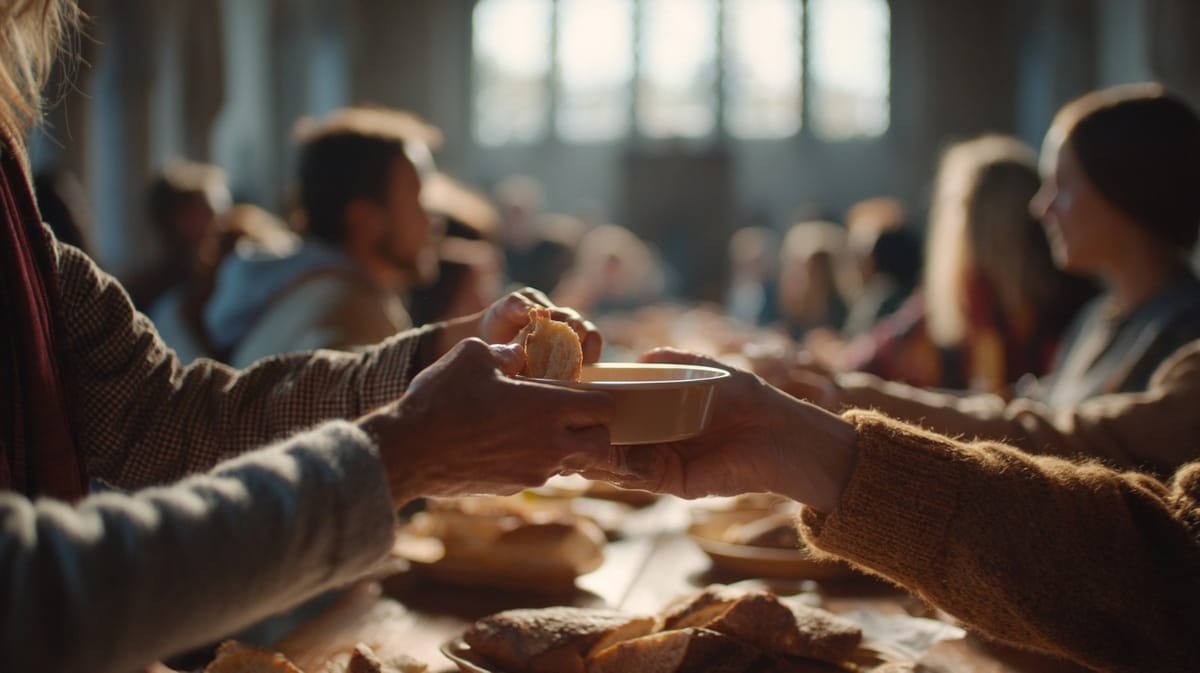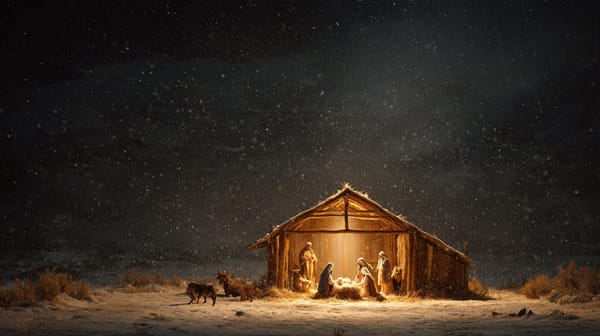Fairhaven UMC Living Stones & Prevention Point

Summary
Fairhaven United Methodist Church, located on a busy highway in Pittsburgh, recognized an opportunity to serve its community and partnered with Prevention Point Pittsburgh, an organization providing harm reduction services. Initially offering a weekly van in their parking lot for medical care and supplies, the church expanded this effort by collaborating with Living Stones to offer a free community meal during Prevention Point's service hours. This three-way partnership has fostered a welcoming space where individuals experiencing substance use disorder feel comfortable, building relationships and receiving support beyond just practical assistance.
The program has profoundly impacted both the individuals served and the church community. Volunteers and staff from Living Stones have developed deep connections with those attending, offering not just food but also fellowship, prayer, and a sense of belonging. The church has seen a shift in perception, with members recognizing the program's life-saving impact and cultivating a reputation as an open and welcoming space, even for those who might typically avoid traditional church settings.
Transcript
Fairhaven has long been a congregation that is very focused on trying to figure out how to reach out to its community, to leverage the space that we're in, which, you know, anyone can see coming in. We're on a very busy highway right on Route 51. Kind of this weird little, they call it the country church in the city, as some of the church's older branding. This little white church in the middle of the city of Pittsburgh on a major highway.
And so we're in this really interesting place of trying to figure out what it looks like to reach out to our community. How do we be a church that is known for its service and for its outreach and for its attitude as well? And so one of the things that they leaned into was a partnership with Prevention Point Pittsburgh, which is an organization that does harm reduction work with people who use drugs. And so what they started doing was just having a van out there in the parking lot once a week for three or four hours where they would come and just be open for a anybody who needed their services, who needed medical care, who was looking for clean needles. And Fairhaven was really quickly on board with that because they understood very instinctively that This is something that will save lives here.
We wondered how we could start building relationships with the people that come and not just be a site, but be a community space as well. That's building relationships with people who come into the parking lot. So this is actually kind of a three-way partnership now between Fairhaven itself between Prevention Point, just because they're here and we want to serve them, but also another organization called Living Stones, and they serve a free community meal at a different church throughout the South Hills every Sunday. I'm Stormy Parson.
I'm a member here at Fairhaven United Methodist Church, and I'm the executive director of Living Stones, and we rescue food and serve it to people who need it most in the community. So we rescue food from restaurants and institutions across Pittsburgh and then we take that food to different locations every Sunday a month. She proposed the idea to the church and to Living Stones of having one of their meals during prevention point service hours at Fairhaven. What we have found has been just a real.
.. a real blossoming on both sides of positive relationships. Living Stones in general, we value relationships, so people are not just coming in our doors, we're not just scooping food on their plate and sending them off.
We purposely wear name tags, we have our neighbors wear name tags, We take prayer requests and pray with them, so we know a lot of people's deepest parts of their lives, and we are getting connected with them in so many ways. So, Fairhaven has a really wonderful reputation in this community of being an open and welcoming space. It's been great to see like from the beginning that this sort of reputation of welcome has built just by having prevention point in the parking lot. The people of the church, especially you know the parents and the grandparents of the church who can see their own kids and grandkids and a lot of the people that come in recognize that this is something that is saving lives.
What is different is getting them to come inside to something with people from the church. And it's different from the church too because you know offering your parking lot is it's not super hands-on. Whereas whenever people are coming in and are having lunch, sitting down, talking to you, you kind of see a longer term view of their lives. You know, I think oftentimes people do struggle with seeing, you know, people in addiction and struggling with substance use disorder.
But here when we're serving, you know, they've gotten to know our names and they're excited to see us. And, you know, people are we're hugging each other. We're praying for each other. And it's just a great reminder of, you know, the humanness of each of us.
So I'm Lisa Tiger and I'm the outreach coordinator for Livingstone. And honestly, I was I was kind of skeptical in the beginning. I wasn't sure how I felt about programs like that because I struggle with where the line is between enabling and actually being a help. But I was willing to give it a shot.
These folks start coming in and you start listening to their stories. and seeing the situations that they're in. There's one gal who is close by here. I started inviting her to come to this lunch, and she came a couple months ago, and she started talking about her story.
She got involved with a young man who was addicted to drugs, and it wasn't long before she was too, and she said she woke up one morning under a bridge with needles all around her, and she thought, you're a drug addict. And how did you get here? And so you start hearing these stories and it breaks your heart. She's got two kids and she's been clean for almost eight months. And if she stays clean, she gets to see her kids on Sunday.
She's holding down a job. So you also get to see what programs like this do to help people in those situations because so many of the situations seem so hopeless and so desperate. This program of all the things we do has become the one that is the nearest and dearest to my heart. We serve a simple lunch, but I think it's more about the fellowship and encouragement that they get than the food.
For me personally, I think it's even better because each week when we see the same faces come back, it means they're alive. And that means a lot to me because so quickly that could not be the case. And so we're seeing so much deeper things happening all the time. There has been, I think, a really meaningful response from the people in the church to see, like, I just see with our volunteers and with the Livingstone staff, that there is investment in each other's lives, and not just in an abstract sense, but in the real sense of like, I know your name, and if I see you on the side of the street, because you know a lot of them are homeless or close to it, I know who you are.
I can check in and ask how you're doing. It is really just such a big deal to say, No, we do want you here. And not just we want to, we're a church that wants you here. People who deal with any kind of shame or just problems with their self really don't want to walk into a church.
And yet we find that a lot of times if people who are in addiction especially feel like they're going to walk into a church, this is one that they feel comfortable walking into. And that is just a really...
that's a powerful thing to be able to cultivate. So I'm really happy that we've gotten to do that.



